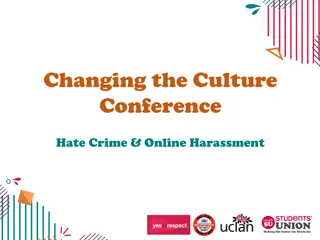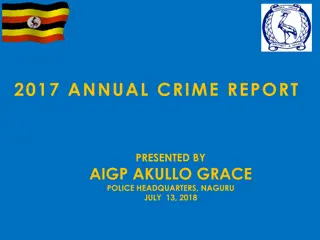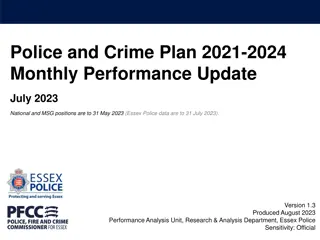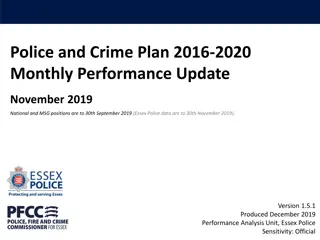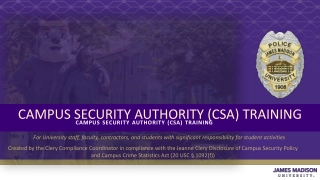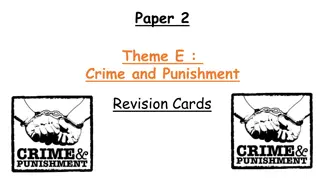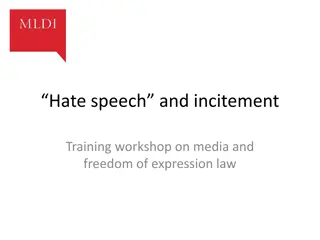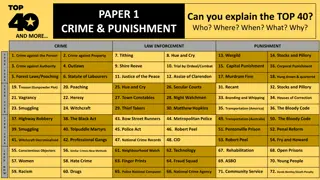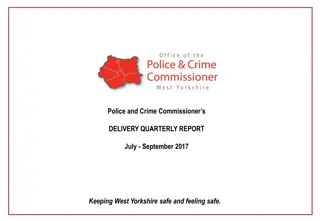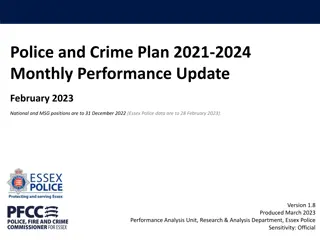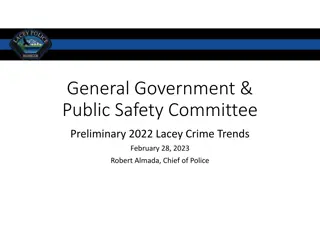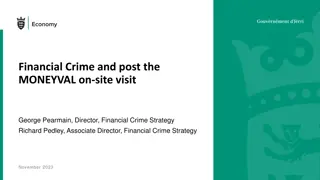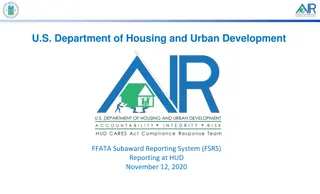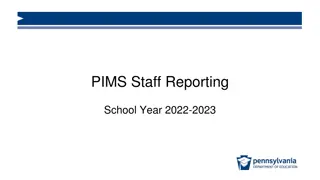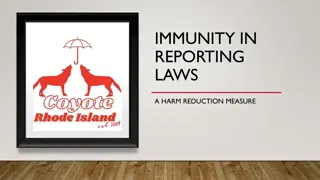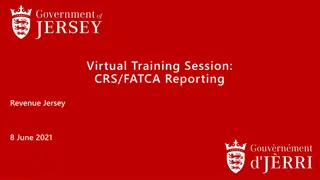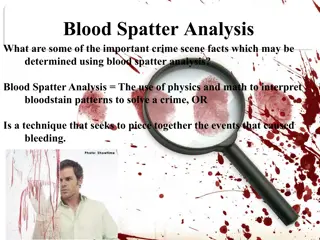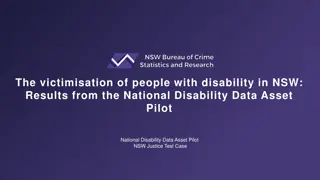Understanding Hate Crime: Training and Reporting
Gain insights into hate crimes, definitions, and reporting procedures to become a Third Party Reporting Centre. Learn about identifying hate crimes, common definitions, and the importance of registering with the Office of the Police and Crime Commissioner for support. Explore the concepts of hostility, prejudice, and perceptions associated with hate crimes.
Download Presentation

Please find below an Image/Link to download the presentation.
The content on the website is provided AS IS for your information and personal use only. It may not be sold, licensed, or shared on other websites without obtaining consent from the author. Download presentation by click this link. If you encounter any issues during the download, it is possible that the publisher has removed the file from their server.
E N D
Presentation Transcript
PLEASE READ PLEASE READ This training presentation has been designed to provide organisations with a basic understanding of hate crime. However, in order to become fully established as a Third Party Reporting Centre, an organisation MUST contact the Office of the Police and Crime Commissioner to register their interest. This is so we can ensure you have the right processes in place, are linked in appropriately with your local District Inspector and Community Cohesion Officer, and receive the right support and training going forward. Without this in place we will not be able to support you.
Third Party Reporting Centres Third Party Reporting Centres Refresher Training Refresher Training
Hate crime - Definitions Hate crime: Hate crime: The National Police Chief s Council (NPCC) and the Crown Prosecution Service (CPS) have agreed a common definition* of hate crime as: Any criminal offence which is perceived by the victim or any other person, to be motivated by hostility or prejudice based on a person s actual or perceived race (including ethnicity and country of origin; religion or perceived religion (including belief and lack thereof; sexual orientation or perceived sexual orientation; disability or perceived disability (including mental health and learning disabilities) and any crime motivated by hostility or prejudice against a person who is transgender or perceived to be transgender. * This definition is used for recording purposes
Hate crime - Definitions Hostility: Hostility: There is no definition of hostility within legislation, the definition within the dictionary is used: e.g. unfriendly and aggressive behaviour. Prejudice: Prejudice: A pre-conceived opinion that is not based on reason or actual experience. Perceptions: Perceptions: Anyone can perceive that an occurrence is a hate crime or a hate incident. The apparent lack of evidence or motivation as the cause of the occurrence is not relevant for recording as hate incident or crime. Can be perceived that a person was gay or of a particular race or belief but victim does not have to be for that matter to be reported as a crime or incident.
Hate crime - Definitions Hate crime: Hate crime: This can be committed against a person or property The victim does not have to be a member of the group towards which the hostility is targeted, anybody can be a victim of hate crime Hate incident (non crime): Hate incident (non crime): Any non-crime incident which is perceived, by the victim or any other person, to be motivated by a hostility or prejudice based on a persons actual or perceived, race; religion or belief; sexual orientation; disability or Transgender identity
Hate crime - Examples Types of hate crimes: Types of hate crimes: Physical assault, including spitting Incitement or hatred Malicious communications, e.g. letters, phones calls Criminal damage, including graffiti Arson or attempted arson Threatening or intimidating behaviour causing harassment, alarm or distress Bullying, spreading of rumours Malicious complaints, e.g. over parking or noise complaints Name calling and offensive jokes Displaying discriminatory posters
Hate crime - Legislation Civil legislation (Equality Act 2010) and three criminal law regimes: Racially or religiously aggravated offences Assaults, criminal damage, public order offenses, harassment Can lead to enhanced sentencing Specific hate crime offences Incitement to hatred (only race, religion and sexual orientation) Racialist chanting Enhanced sentencing Courts are required to consider hate as an aggravating factor for any offence not covered by above legislation Increased sentencing available for all 5 protected characteristics Hostility towards other groups, e.g. subcultures, can also be taken into account when sentencing
Hate crime Process of Police Investigation
Hate crime Process of CPS Investigation
Hate crime Justice Gap Estimated Justice Gap :92%
Hate crime - Examples Crime, incident or neither? Crime, incident or neither? I was working on the ward one evening. As I walked past a patient lying in bed, she said go back to your own country . Is it a: Hate crime Hate incident Neither Based on the information given, this would constitute a hate incident. However, if the victim felt threatened or was caused distress, it could become a hate crime. The reference to the victim's country of origin makes it a race-related hate crime, regardless of where the victim is actually from. It is based on the perception of the offender as to the victim s origins. Hate crime and incidents against emergency workers are common and should not be tolerated.
Hate crime - Examples Crime, incident or neither? Crime, incident or neither? Tom has Down Syndrome. He takes the bus into town every morning and is regularly spat at when he boards the bus by youths known to regularly make fun of people with disabilities. Tom thinks this is normal, and is therefore not upset by the behavior. Is it a: Hate crime Hate incident Neither This is a hate crime, as spitting is physical assault. Sometimes the victim is not aware that they have been a victim of hate crime. However, the recording definition of hate crime states that the victim or any other person can recognize that a hate crime has taken place. Hence, in this case, while the victim does not recognize it as a hate crime, any person made aware of the incident would rightly identify it as a disablist hate crime. This is why it is important to report even if you are not sure, either to the police or through a third party.
Hate crime - Examples Crime, incident or neither? Crime, incident or neither? Anna is part of a Facebook group. She decides to write a new post, where she makes discriminatory comments about trans people, calling them trannies and making threats against trans people. No one person is specifically mentioned in her post. Is it a: Hate crime Hate incident Neither This is a hate crime as Anna makes specific threats against a group of people. It can be a hate crime even if a specific person is not named. While there is clear legislation around cyber-related offences and the police would take this seriously, it can be difficult to prove who committed the offence. However, you should can still report online hate crime to the police, to third-party organizations or to the social media company.
Hate crime - Examples Crime, incident or neither? Crime, incident or neither? I am part of a gypsy-traveller community who have recently moved onto a field on the outskirts of a town. Last night someone spray painted f*** off on our caravan. I think it is because many people in the town are angry about the presence of my community. Is it a: Hate crime Hate incident Neither This is a hate crime as it involves criminal damage to the caravan (graffiti) and the victim perceives it to be motivated by hatred towards their protected characteristic. Gypsy, Roma and Traveller communities are included in the definition of race, and this would therefore be a race-related hate crime.
Hate crime - Examples Crime, incident or neither? Crime, incident or neither? Gareth works with a Jordanian male who sits on the desk next to him. Gareth asks his manager for a different desk, because he doesn t like Muslims and his colleague hears the conversation. The Jordanian colleague is not Muslim, in fact he is a Christian. Is it a: Hate crime Hate incident Neither This would be a hate incident, as a criminal offense has not taken place. You do not have to possess the characteristic inferred to be a victim of a hate incident or hate crime.
Hate crime - Examples Crime, incident or neither? Crime, incident or neither? Julia is walking past two males at the corner of the street. One of them wolf-whistles as she walks past, causing her to feel distressed and afraid. She feels this is because she is a woman. Is it a: Hate crime Hate incident Neither This is not a hate crime or hate incident, as gender is not a protected characteristic for the purposes of hate crime. However, this is still a criminal offense, as Julia is caused distress and fear. Therefore, police would still investigate the crime, but it would not be a hate crime.
Hate crime - QUIZ Crime, incident or neither? Take the full quiz yourself at: surveygizmo.eu/s3/90278241/Hate-crime-or-not (also accessible from hampshire-pcc.gov.uk/hatecrime)
Hate crime Underreporting Approximate reporting rates for hate crime Approximate reporting rates for hate crime Sexual orientation 1/12 Race 1/4 Disability 1/32 Transgender 1/80 Religion 1/4
Hate crime Barriers to reporting Why would a victim not want to report a hate crime?
Hate crime Barriers to reporting Not realising the reason for being targeted Ashamed or embarrassed Not wanting to share personal information Not serious enough Will not be believed Believe nothing will change Abuse becomes normal Communication/life skills Cultural issues Poor MH Poor Physical health Denial Fear it will get worse Mistrust Fear of involvement of professionals This is not an exhaustive list
Hate crime Why Report? Why should hate crime be reported?
Hate crime Importance of reporting Reporting: It is a serious criminal offense Early intervention can prevent further escalation Those found guilty can receive an uplifted sentence to reflect the disproportionate impact Greater knowledge We do not know if we are not told about it Identifying trends, patterns and hot spots Identify repeat victims and offenders Directing resources Plan responses and work with communities Target patterns and hot spots
Hate crime Disproportionate Impact Figure 3.4: Emotional impact of hate crime incidents, 2015/16 to 2017/18 CSEW
Hate crime Reporting Reporting options: Reporting options: In emergencies, call the police on 999 If you are deaf, hard of hearing, or have a speech impairment, a text phone is available on 18000 Pre-registered users can also text Hampshire Constabulary on 999 The non-emergency number for your police force is 101 The non-emergency number for Deaf or Speech Impaired people is 07781 480 999 Report online: hampshire.police.uk To a third party reporting centre True Vision
Hate crime Third Party Reporting Centres Background to Third party reporting centres: Background to Third party reporting centres: TPRCs emerged following the public inquiry into the police handling of the racist murder of teenager Stephen Lawrence in April 1993. The inquiry led by Sir William Macpherson produced a detailed report (the Macpherson Report) in 1998 which made a number of recommendations. In relation to TPRCs the most important was recommendation 16. That all possible steps should be taken by Police Services at local level in consultation with local Government and other agencies and local communities to encourage the reporting of racist incidents and crimes. This should include: - the ability to report at locations other than police stations; and - the ability to report 24 hours a day Despite the recommendation only specifically mentioning racist incidents and crimes, TPRCs have evolved to support victims of all forms of hate crime
Hate crime Third Party Reporting Centres Third party reporting centres: Third party reporting centres: It is widely accepted that hate crimes are under-reported across all strands. Not all victims are comfortable with reporting their experiences directly to the police. Third Party Reporting Centres (TPRCs) overcome these barriers by providing an alternative to directly reporting to the police, give confidential advice, help victims report it, and support them. Victims can remain anonymous if they wish, and don t need to have contact with the police if they don t want to. Without alternative reporting mechanisms a number of hate incidents and crimes would never be reported or recorded.
Hate crime Third Party Reporting Centres Main functions: Main functions: Commonly known as the 3Rs, TPRCs have three main functions: A place to report hate crimes A place to help record hate crimes A place to help support, signpost and refer victims of hate crimes For further details about TPRCs, please visit: hampshire-pcc.gov.uk/hatecrime
Hate crime True Vision What is it? True Vision is a police-funded web site designed to provide you the public with information about Hate Crime and victims / third parties a secure way of reporting their hate experiences to the police Includes useful resources (strategies, personal safety tips, hate crime prosecution levels and national hate crime data)
Hate crime True Vision Provides more power to the victim Reporting person has choice: TRUE VISION To report anonymously o Report as victim, witness or third person o Provide as much details as comfortable o Decide how and when to be contacted, including through a third party o Decide to not give personal details to police -> no police investigation o Can report on physical form in other languages and easy-read format o Can also report online hate material report-it.org.uk True Vision - report-it.org.uk
Hate crime True Vision TPRC becomes aware of HC through interaction with service user Victim approaches TPRC to report HC Has the victim reported to the police? No Yes Is the victim happy to report themself? Provide any additional support/signposting as required Yes No Provide additional support/signposting as required Does the victim want to report through the TPRC? No, victim does not want to make a report Yes TPRC supports victim with report, either passively (victim reports them self with support from TPRC) or actively (reporting on behalf of victim) Explain benefits of reporting and explore other options, e.g. reporting anonymously TPRC can submit report on behalf of victim TPRC keeps anonymized record of interactions
Hate crime TRUE VISION To report through True Vision a hate crime or hate incident Click on the attached link below and scroll down Hate Crime / Incident Reporting Form | Metropolitan Police TRUE VISION You are not required to provide any personal information and can submit the report anonymously Your report will be forwarded onto the police force (policing area) where your hate incident has occurred and will be recored. A police officer from that force will be contact with you unless you have reported anonymously report-it.org.uk
Hate crime Third Party Reporting Centres Third Party Reporting Centres: 3 in 2017 56 in 2020 Southampton Independent TPRC Network Portsmouth Independent TPRC Network Citizens Advice TPRCs Partners agencies (Victim Support, local authorities, Universities etc.)
Thank you Further information hampshire-pcc.gov.uk/hatecrime
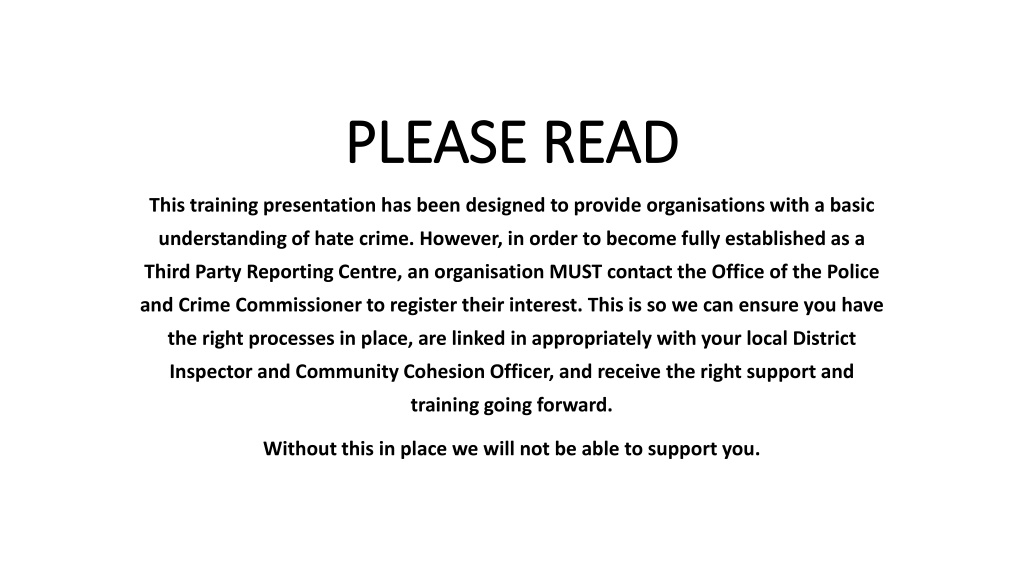

![Prevention and Combating of Hate Crimes and Hate Speech Bill [B.9B.2018]](/thumb/60513/prevention-and-combating-of-hate-crimes-and-hate-speech-bill-b-9b-2018.jpg)






